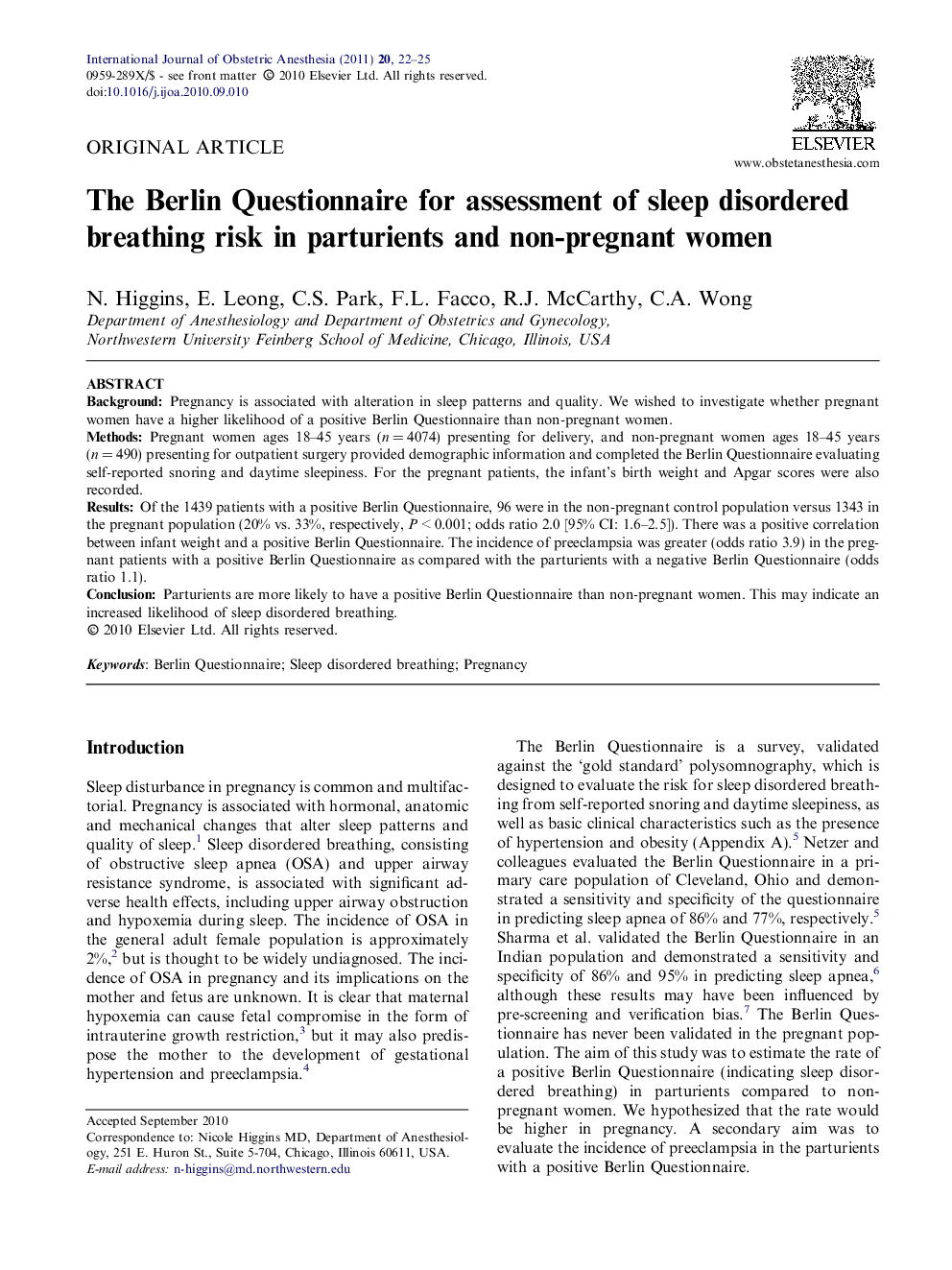| Article ID | Journal | Published Year | Pages | File Type |
|---|---|---|---|---|
| 2758044 | International Journal of Obstetric Anesthesia | 2011 | 4 Pages |
BackgroundPregnancy is associated with alteration in sleep patterns and quality. We wished to investigate whether pregnant women have a higher likelihood of a positive Berlin Questionnaire than non-pregnant women.MethodsPregnant women ages 18–45 years (n = 4074) presenting for delivery, and non-pregnant women ages 18–45 years (n = 490) presenting for outpatient surgery provided demographic information and completed the Berlin Questionnaire evaluating self-reported snoring and daytime sleepiness. For the pregnant patients, the infant’s birth weight and Apgar scores were also recorded.ResultsOf the 1439 patients with a positive Berlin Questionnaire, 96 were in the non-pregnant control population versus 1343 in the pregnant population (20% vs. 33%, respectively, P < 0.001; odds ratio 2.0 [95% CI: 1.6–2.5]). There was a positive correlation between infant weight and a positive Berlin Questionnaire. The incidence of preeclampsia was greater (odds ratio 3.9) in the pregnant patients with a positive Berlin Questionnaire as compared with the parturients with a negative Berlin Questionnaire (odds ratio 1.1).ConclusionParturients are more likely to have a positive Berlin Questionnaire than non-pregnant women. This may indicate an increased likelihood of sleep disordered breathing.
